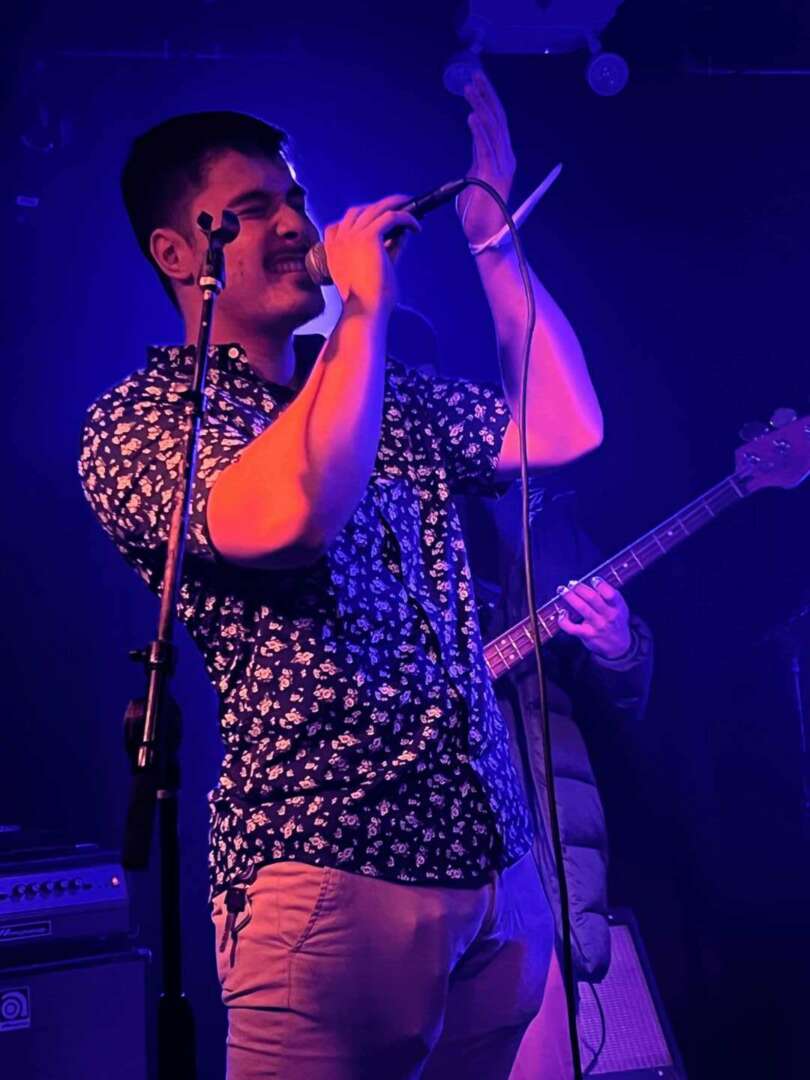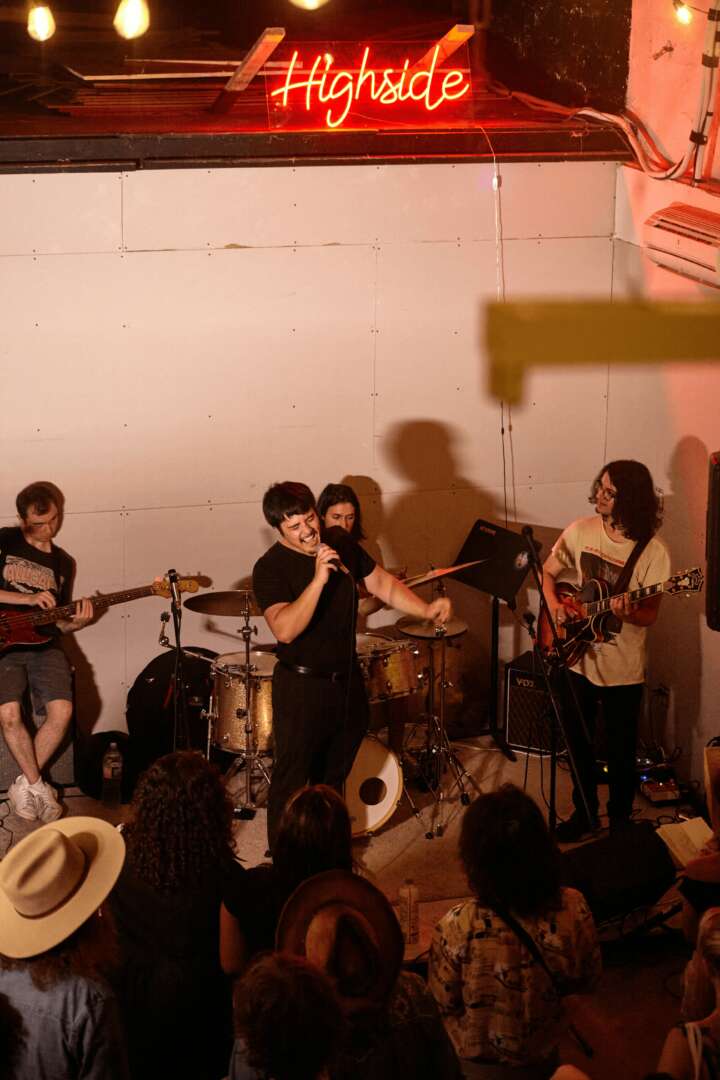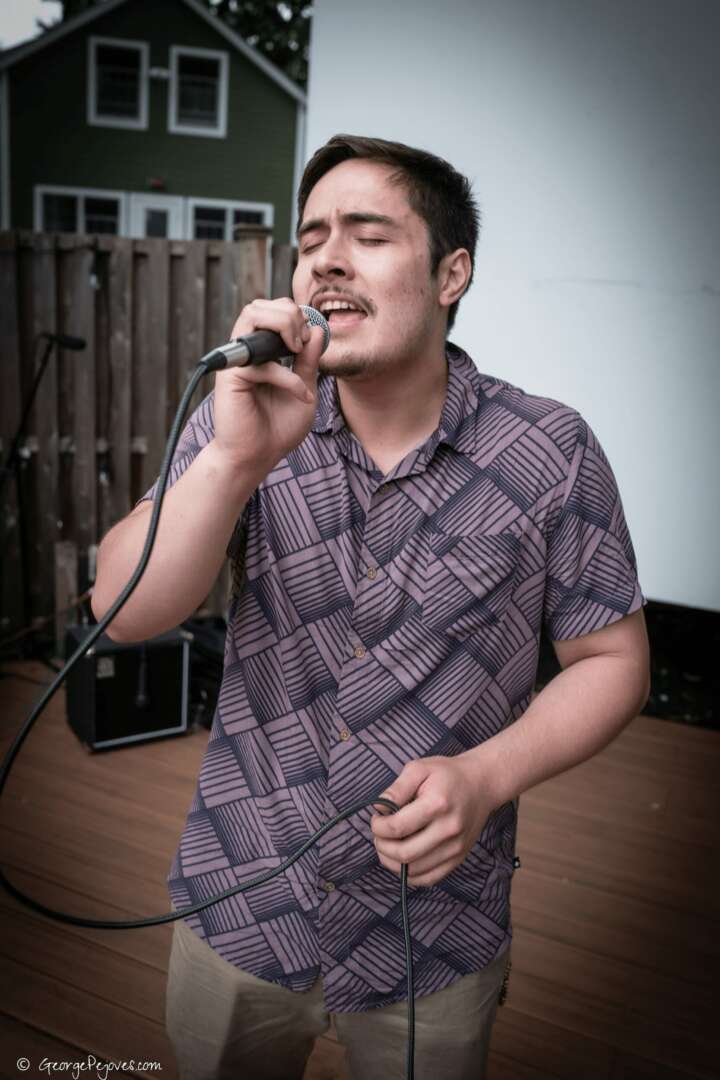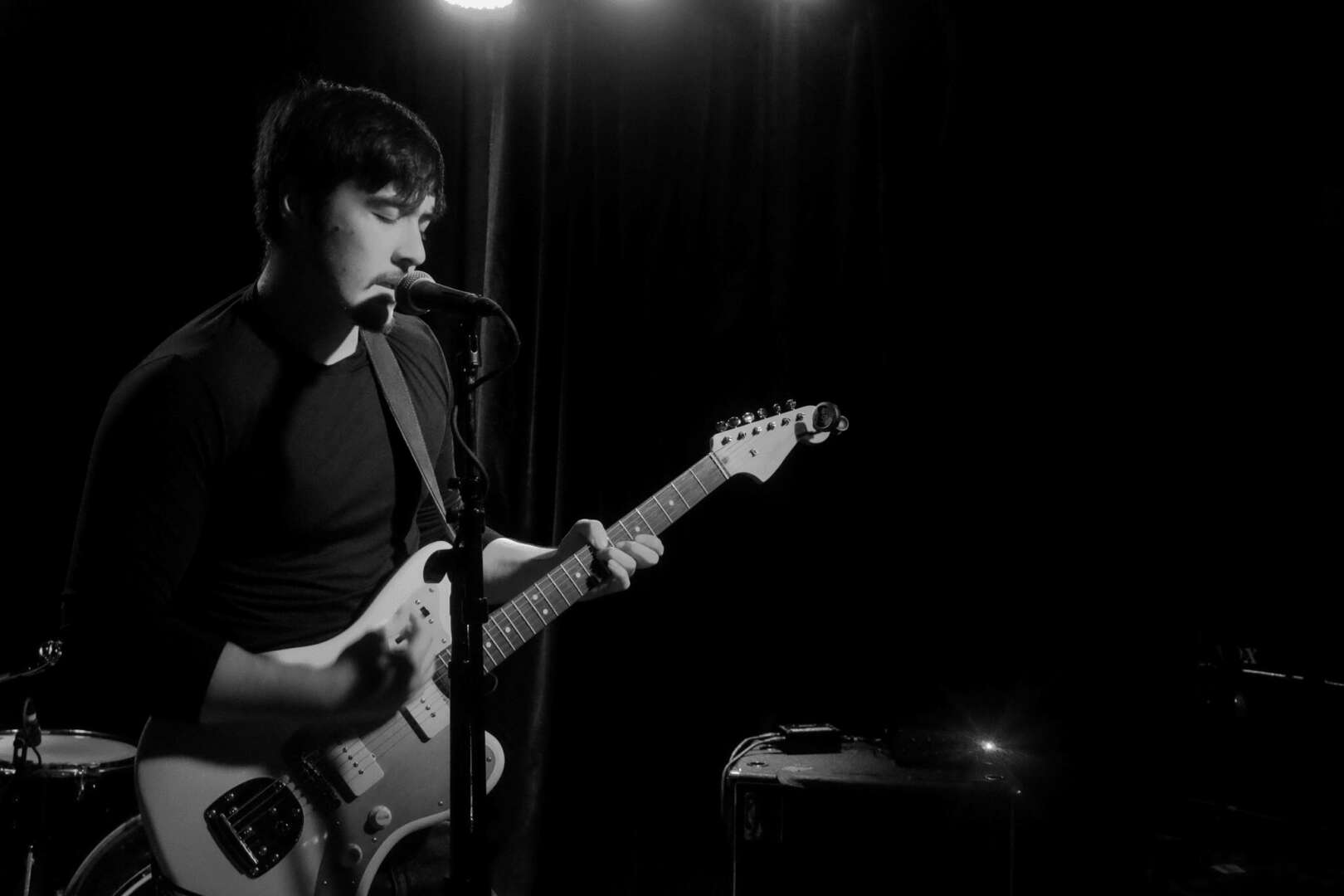We were lucky to catch up with Noah Rosner recently and have shared our conversation below.
Noah , thanks for joining us, excited to have you contributing your stories and insights. Can you talk to us about how you learned to do what you do?
A lot of what I learned about harmony early on I must give credit to my father, who taught me to play guitar and encouraged me to sing as a child. He got me my first guitar on a business trip where my family went out to meet him, I think it was in California.
I remember him teaching me the chords to “Hey Jude” by the Beatles, except we played in in the key of A instead of F because I only knew how to play three open chords at the time*. But when we got to the “na na na” part that goes on forever in the song my Dad let me do a paramount important thing that I think set me on the right path early on: He let me sing whatever I want over the “na na na nah’s”, absolutely whatever I wanted without judgement. And I just started singing notes on top of the melody my dad was faithfully holding down for me, and started figuring out what degrees of the scale fit nicely over others, although I didn’t know what a scale was just yet. I began to ask my dad to play hey Jude all the time just to get to the “na na na” part where I’d get to harmonize and improvise freely and I got quickly addicted to that feeling.
That memory is something that I try to hold on to whenever I’m practicing today. A lot of learning Jazz Vocabulary comes down to heavy listening and internalizing, and that process of internalization can’t be forced in the same way other skills can be. It has to come from that place of love and cerebral flow, that can only be reached from a spot of patience and love for yourself, I know that sounds corny but I’ve found it to be true. You have to constantly seek out sounds that you love and play with them and work them out until they become a part of you
*(A D and E major, you can play most of hey Jude like that haha)

Noah , before we move on to more of these sorts of questions, can you take some time to bring our readers up to speed on you and what you do?
Hi! For those of you meeting me for the first time, my name is Noah Rosner, I’m a Jazz Vocalist, Singer/Songwriter, and Bassist for Brea Fournier and the Dream Ballet and Piper Page. You can find me playing with these bands and leading my own one at venues all over NYC! I combine my passions for Jazz and improvisation, and the good ol’ pop song into music that is as heavily influenced by Wayne Shorter as John Mayer or Mac Demarco. If that sounds interesting to you, I just released two live recorded projects ” 24, Highside ’23” which is a live album of all original music and “Recitation” which is a collection of 3 interpretations of some of my favorite Jazz tunes, you can check them out wherever you like to check out music.
What can society do to ensure an environment that’s helpful to artists and creatives?
This quickly becomes a loaded question because music and how it generates money sits in a really precarious position. By precarious I don’t mean unstable I mean really really messed up. Streaming services are so inexpensive and the desire for instantaneous access to it so intense it’s impossible for musical artists to make a living through selling their recorded music. There is simply no market for it anymore. There’s also more music being made than ever as studio-quality-audio becomes accomplishable at home and other alternative spaces, and a label is no longer needed to distribute your record since there’s no one wanting to buy it that way. This is part of the argument that Spotify uses to justify the small portion of their profit that they use to deal out royalties. They claim that music is “free” to make and distribute now, and because of this isn’t worth money anymore. But anyone who works to release music knows this isn’t true, there are recording costs, equipment costs if you’re doing it completely by yourself. Even if making music was completely free in some altered universe, I highly doubt that anyone would agree that the music they listen to is worth as little as it is right now. Nonetheless, I feel a lot of artists feel helpless in what to do when it comes to making a living, and only see this twisted game of viral-ness where their forced to churn out “content” in exchange for the opportunity to be seen, and maybe, an opportunity to make a living, constantly trying to outdo themselves and others grabbing for your attention. It’s honestly exhausting at times.
The market is absolutely saturated with millions of amazing songs and they get lost in the ether of the internet. So how can you help? I think the bart way is to get back to your roots musically. Seek out the music you like to listen to and find where it happens live in your neighborhood and go support it. Buy their merch, see their shows, help artists play the twisted game and share their music with people. If you have the space to support live music, open your space to musicians to play a show! I think the wheels of progress have the economy of music in a really precarious position and it’s going to require the creativity of the people who support artists to help make making music a sustainable process.

Is there mission driving your creative journey?
A large part of my goal as an artist is affirming the voice as a musical instrument, capable of improvisation and accompanying other instruments as much as any other instrument might lend itself to those things. In Jazz culture, the voice sits precariously between being the most instantly relatable instrument in a jazz setting and the most incapable. The voice often carries the melody that the audience remembers the most clearly, but sits out of the improvisation that follows, which is where I always felt the “Jazz” actually happened. I always sat uneasy watching vocal jazz concerts where the singer would sing beautifully and then disappear into the crook of the piano until the jazz ended and the melody reinstated. I began to search for jazz vocalists who break that mold and fell in love with the vocal improvisations of Jon Hendricks, Chet Baker, Mark Murphy, and Leon Thomas. I began to dedicate myself to figuring out what they figured out about improvising vocally, and putting it into my own practice. In every project I create and show I play I try to push my use of the voice in an instrumental fashion, trying to show the audience the different ways the voice can be used to uphold musical spaces, and how it is not limited by language or written phrases. I’ve always been interested in the voice as an instrument. After all, it has to have been the first one humans used to make music; it was certainly the most accessible. To the audience of music, the vocalist, perhaps through the gift of language, perhaps through something else entirely, has some extra power over instruments in commanding attention. I think that extra power comes from singing demonstrating to us where music comes from. Just like the sound being produced from our bodies, music comes from within us!
Contact Info:
- Website: https://www.noahrosner.com
- Instagram: https://www.instagram.com/noahrosnermusic/
- Other: https://open.spotify.com/artist/7fk4ZFVY9kR4WIFuLaevga

Image Credits
None needed


